President talks Kosovo crisis in exclusive interview
In an exclusive interview for B92 in Belgrade on Friday, Serbian President Boris Tadić addressed the escalating crisis in Kosovo and Metohija.
Friday, 29.07.2011.
16:25

In an exclusive interview for B92 in Belgrade on Friday, Serbian President Boris Tadic addressed the escalating crisis in Kosovo and Metohija. Tadic said that the Wednesday attack on one of the administrative line checkpoints - which Kosovo police units tried to take over on Monday, sparking the crisis - could have been the work of criminal structures in Kosovo connected both to Serbs and ethnic Albanians. President talks Kosovo crisis in exclusive interview He added that it was a "well-known fact that criminal structures from Kosovo and Metohija have strong links to the Pristina (K. Albanian) establishment". It is of utmost importance to investigate who set the checkpoint of Jarinje on fire, the president continued, adding that it was an act that went "completely contrary to Serbia's interests". "It is not at all impossible that someone from Pristina initiated it," said he. "It must be carefully investigated who gave instructions to burn down that customs crossing where Serbs had a clear, complete majority in line with all previous agreements and acts, that crossing that was not representing any problem at that point, that crossing the burning down of which absolutely represents endangering of Serbia's interests and interests of the Serb people in Kosovo," Tadic told B92. He said it was not in Serbia's interest for the incident to happen, "because Serbia's international position was weakened immediately," and that he believed that "investigative institutions will find out who did it". "What is unequivocal is that those people did not come from this side of the administrative line, in other words, they did not come from central Serbia, they came from the other side of the administrative line." The president also voiced strong criticism of Christopher Dell, who serves as American ambassador in Pristina. "It is surprising that the policy in Kosovo is being implemented by the U.S. ambassador there, who more than once drew attention to himself with his radical statements, along with ICO high representative Mr. (Pieter) Feith. This is one of the facts that we must take into account, which does not mean that the entire U.S. administration stands behind such an action. That is visible from a statement given by U.S. Ambassador (in Belgrade) Mary Warlick, as well as statements made by EU representatives after the crisis broke out," said Tadic. He added that the role of all those involved "will be obvious at the end of this process", and expressed his regret over the loss of life of an ethnic Albanian member of the KPS units sent to the north. "However, on the other side we have injured people, regular citizens, we have a manufactured crisis that could have had unforeseeable consequences, and I expect that international investigative organizations, as well as ours, to investigate everyone's role in the process that could have shattered the fragile stability and peace in Kosovo," the president continued. He appraised that the administration in Pristina "does not independently make decisions such as sending the Rosu unit to administrative crossings in northern Kosovo, nor will it make such decisions independently in the future". Tadic also asserted that Serbia "truly bears no responsibility" for the current crisis in Kosovo. Boris Tadic (file) "Kosovo over EU" "We negotiated peacefully the whole time, with the best hope of finding a solution, and we did not wish to block the process, proving that with those solutions that have already been achieved in the negotiating process. The real intention was to use problems related to finding solutions for the customs seal (of Kosovo) in order to change the situation in northern Kosovo," he said. The president stressed that both Serbian and international public must be aware of this. Boris Tadic told B92 that if recognizing Kosovo were ever to be set as a condition for Serbia in order for the country to join the European Union, Serbia's answer would be, "no". "That is a very simple answer. I am Serbia's president who conducts a predictable policy, and I am informing my European partners," Tadic concluded. Dialogue in crisis The EU-sponsored rounds of dialogue held since March between Belgrade and Pristina in Brussels are now "in a crisis", said Tadic, adding that the talks would continue once the situation had been restored to what it was before KPS units intervened in the north. But he also noted that there was "no dilemma at all that Pristina does not care about the dialogue". "The dialogue between Belgrade and Pristina has no alternative, and there is no better solution. The alternative solution is violence and war, and Pristina at this point resorted to violence, while Belgrade did not. This must be concluded. We wish to continue with the dialogue, but in order for that to happen the situation must return to how it was before the (KPS unit) Rosu intervention," said Tadic.
President talks Kosovo crisis in exclusive interview
He added that it was a "well-known fact that criminal structures from Kosovo and Metohija have strong links to the Priština (K. Albanian) establishment".It is of utmost importance to investigate who set the checkpoint of Jarinje on fire, the president continued, adding that it was an act that went "completely contrary to Serbia's interests".
"It is not at all impossible that someone from Priština initiated it," said he.
"It must be carefully investigated who gave instructions to burn down that customs crossing where Serbs had a clear, complete majority in line with all previous agreements and acts, that crossing that was not representing any problem at that point, that crossing the burning down of which absolutely represents endangering of Serbia's interests and interests of the Serb people in Kosovo," Tadić told B92.
He said it was not in Serbia's interest for the incident to happen, "because Serbia's international position was weakened immediately," and that he believed that "investigative institutions will find out who did it".
"What is unequivocal is that those people did not come from this side of the administrative line, in other words, they did not come from central Serbia, they came from the other side of the administrative line."
The president also voiced strong criticism of Christopher Dell, who serves as American ambassador in Priština.
"It is surprising that the policy in Kosovo is being implemented by the U.S. ambassador there, who more than once drew attention to himself with his radical statements, along with ICO high representative Mr. (Pieter) Feith. This is one of the facts that we must take into account, which does not mean that the entire U.S. administration stands behind such an action. That is visible from a statement given by U.S. Ambassador (in Belgrade) Mary Warlick, as well as statements made by EU representatives after the crisis broke out," said Tadić.
He added that the role of all those involved "will be obvious at the end of this process", and expressed his regret over the loss of life of an ethnic Albanian member of the KPS units sent to the north.
"However, on the other side we have injured people, regular citizens, we have a manufactured crisis that could have had unforeseeable consequences, and I expect that international investigative organizations, as well as ours, to investigate everyone's role in the process that could have shattered the fragile stability and peace in Kosovo," the president continued.
He appraised that the administration in Priština "does not independently make decisions such as sending the Rosu unit to administrative crossings in northern Kosovo, nor will it make such decisions independently in the future".
Tadić also asserted that Serbia "truly bears no responsibility" for the current crisis in Kosovo.
"Kosovo over EU"
"We negotiated peacefully the whole time, with the best hope of finding a solution, and we did not wish to block the process, proving that with those solutions that have already been achieved in the negotiating process. The real intention was to use problems related to finding solutions for the customs seal (of Kosovo) in order to change the situation in northern Kosovo," he said.The president stressed that both Serbian and international public must be aware of this.
Boris Tadić told B92 that if recognizing Kosovo were ever to be set as a condition for Serbia in order for the country to join the European Union, Serbia's answer would be, "no".
"That is a very simple answer. I am Serbia's president who conducts a predictable policy, and I am informing my European partners," Tadić concluded.
Dialogue in crisis
The EU-sponsored rounds of dialogue held since March between Belgrade and Priština in Brussels are now "in a crisis", said Tadić, adding that the talks would continue once the situation had been restored to what it was before KPS units intervened in the north.But he also noted that there was "no dilemma at all that Priština does not care about the dialogue".
"The dialogue between Belgrade and Priština has no alternative, and there is no better solution. The alternative solution is violence and war, and Priština at this point resorted to violence, while Belgrade did not. This must be concluded. We wish to continue with the dialogue, but in order for that to happen the situation must return to how it was before the (KPS unit) Rosu intervention," said Tadić.











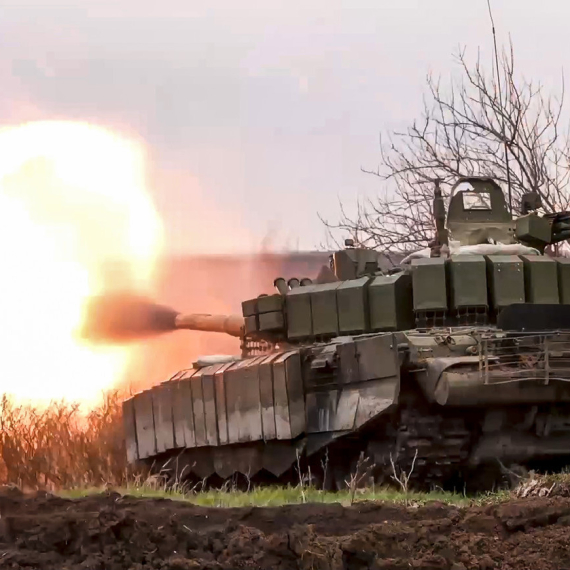
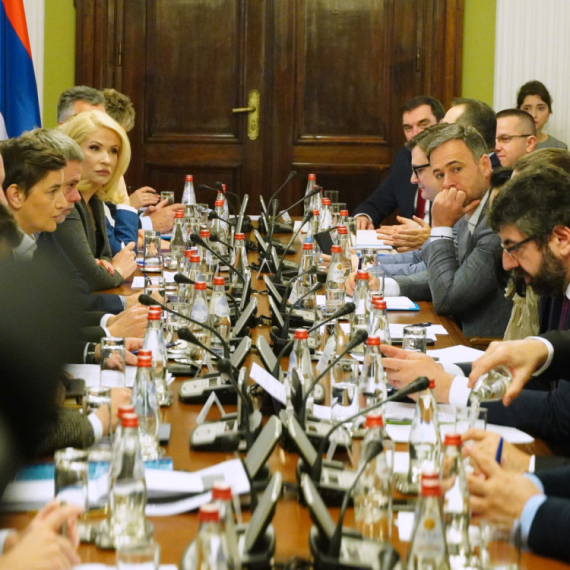


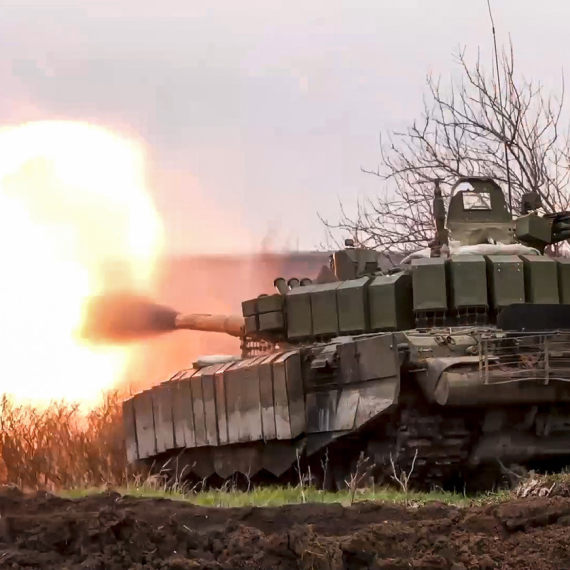

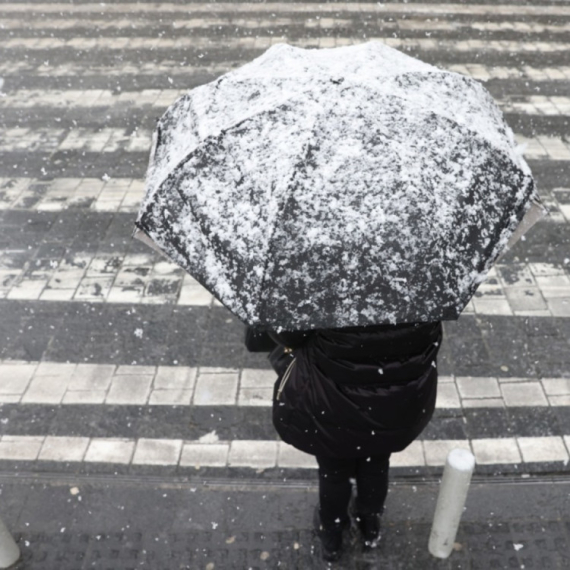
















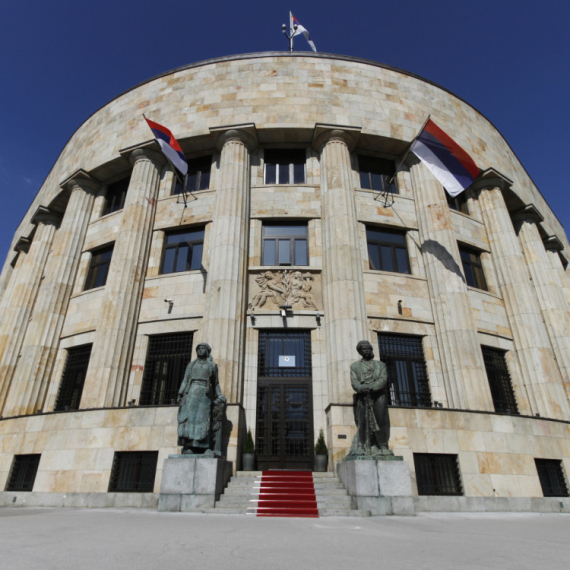














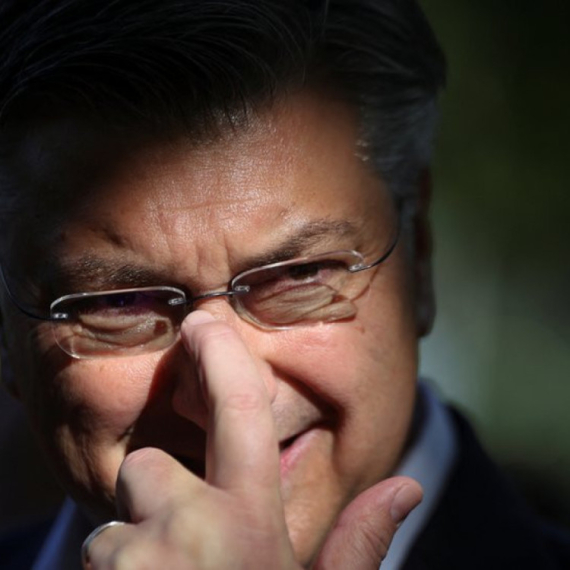
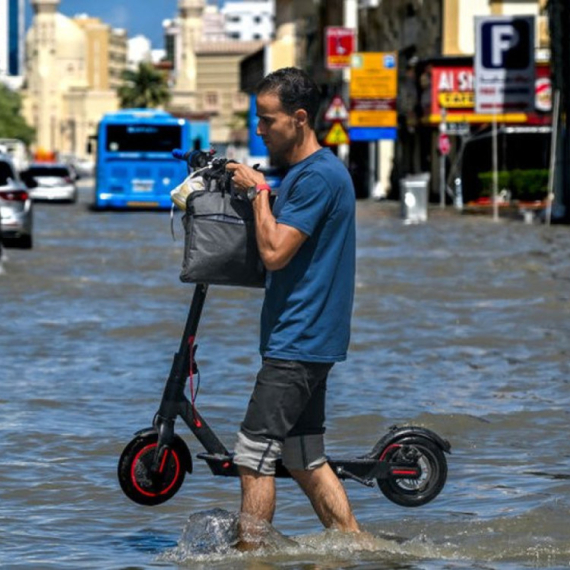
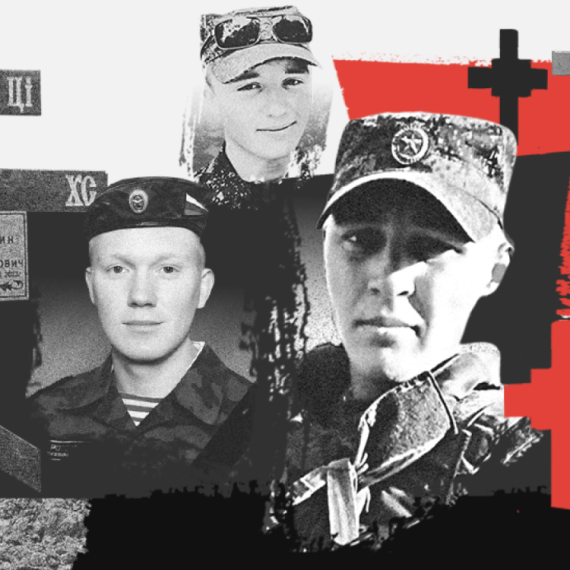


Komentari 38
Pogledaj komentare